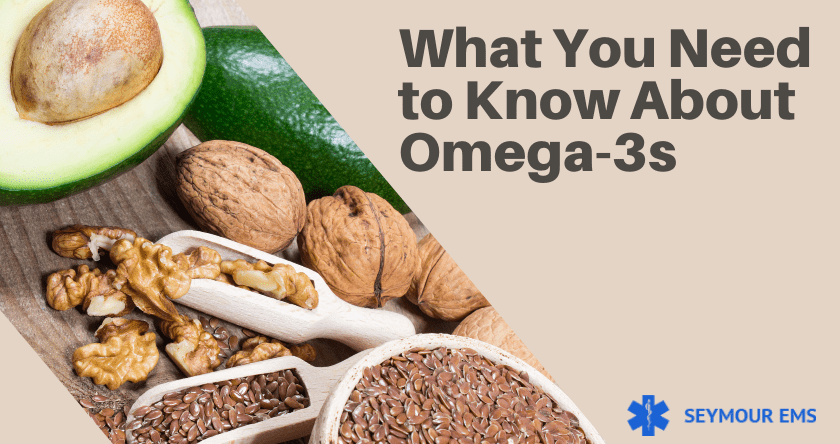Let’s discover what are the health benefits of Omega 3 and why they are so important.
Are You Getting Your Daily Dose of Omega 3?. When it comes to eating a healthy diet, cutting out fat is a must. But one thing a lot of people still don’t know is how important omega 3 fatty acids are. While they are still a type of fat, they’re a very specific type that’s actually good for you.
From lowering your blood pressure and improving heart health, eating a diet rich in sources of omega-3s can do wonders.
What are the health benefits of omega 3?
Living a healthier lifestyle starts with what you eat. And with so much emphasis on decreasing calories and unhealthy fats, it’s important to know what Omega 3s can do for you. In addition to lowering your risk factors of stroke and hypertension, an omega-3 supplement also offers the following benefits:
Lower Triglyceride Levels
High triglyceride levels are directly linked to a high risk of cardiovascular disease. According to the American Heart Association, taking omega-3 fatty acids or eating cold-water fish at least twice can significantly lower levels of triglycerides.
If you do suffer from cardiovascular disease, you might need to increase the levels of omega-3, so it’s always best to speak with your doctor prior to increasing the dose.
Rheumatoid Arthritis
Omega-3, or polyunsaturated fats, is a specific type of fat that’s not found in our bodies naturally. Unlike saturated fats, which are bad for you, polyunsaturated fats can reduce the risk of many diseases, including the painful inflammation of arthritis.
Depression Studies have shown that eating higher levels of omega 3 may improve depression. The positive effect of these dietary supplements is still being investigated, however, especially in cases of seasonal mood disorders, eating a healthier diet and avoiding junk food can help boost mood.
Types of Omega 3
Omega 3 comes in various. Whether taken as a supplement or eaten, there are three types of omega 3 fatty acids, all of which can improve your health.
ALPHA
Usually found in plant foods, kale, spinach, and soybeans contain the highest levels.
EPA
This type of fatty acid can be found in seafood, algae and some dairy products.
DHA
DHA is important for brain development. In fact, research shows that it may play a positive role in slowing the progression of Alzheimer’s disease. DHA is also found in certain types of seafood.
Sources of Omega 3
While it’s possible to get your daily dose of Omega 3 with fish oil supplements, it’s always better to get your daily dose by consuming it. Omega 3 can be found in a variety of foods, specifically certain types of fish. Salmon is very high in Omega 3 fatty acids, but there are other sources that are just as tasty.
If you’re not a fan of salmon, you can always try one of the following foods:
- Herring
- Sardines
- Marlin
- Orange Roughy
- Tuna
- Trout
Keep in mind that any of the above-mentioned types of fish should be baked, broiled or grilled. Fried fish does not offer the same health benefits as eating fish prepared in a healthier way. When it comes to getting young children to eat more oily fish, it’s best to talk to your doctor first, to ensure they aren’t allergic.
Final Thoughts
Whether you take omega-3 supplements or eat fatty fish, the benefits of omega-3 are plentiful. From lowering high triglycerides to warding off depression, a diet rich in polyunsaturated fatty acids is one way to stay healthy and active. Hopefully, we answered the question, “What are the health benefits of omega 3?” If you have more questions, be sure to reach out to your doctor.
Intereted in joining our team? SeymourEMS has employment opportunities, click here to learn more.


Recent Comments